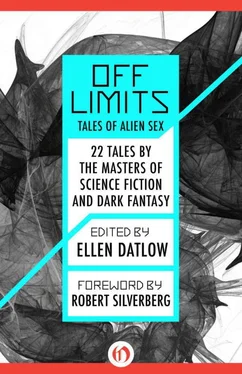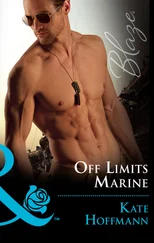In the kitchen, Eunice heard a strange sound, like mewing, or whimpering, from the rear of the house, and went uneasily to investigate. (Eunice had inherited the four-story Delancey Street brownstone from her widowed mother; it was in an old, prestigious Philadelphia neighborhood within walking distance of the Penn campus, and only a ten-minute drive to Eunice’s office at the Philadelphia Academy of Fine Arts. A handsome property, coveted by many, though bordering on an area with an ever-increasing crime rate.) In the winterized porch, on an antiquated sofa-swing, partly hidden beneath an old blanket, was what appeared to be a living creature—at first Eunice thought it must be a dog; then, panicked, she thought it must a child. “What?—what is it?” Eunice stammered, transfixed in the doorway. The rear porch was shut off from the house, rarely used. A smell as of decayed leaves, overripe peaches was so strong here, Eunice gagged.
The creature, neither an animal nor fully human, was about two feet long, and curled convulsively upon itself. Its head was overlarge for its spindly body, and covered in long thin damp black hairs. Its skin was olive-dark, yet pallid, like curdled milk; its face was wizened, the eyes shut tight, sunken. How hoarsely it breathed, as if struggling for oxygen!—there was a rattling sound in its throat, as of loose phlegm. Eunice thought, It’s feverish, it’s dying. Her breasts ached, the nipples especially, as if she were a nursing mother in the presence of her infant.
Eunice tried to think: should she run outside, get help from one of her neighbors? Should she call an ambulance?—the police? There were friends and colleagues she might call, a married cousin in Bryn Mawr… But what would I say? What is this — visitation? She felt a stab of pity for the creature, struggling so desperately to live; she understood that it was starving, and that there was no one else in all the world, except her, to feed it.
Now its eyes opened, and Eunice saw that they were beautiful eyes, whether animal or human: large, dark, tremulous with tears, with an agate sheen, recessed beneath the oddly bony forehead.
Aloud Eunice murmured, “Poor thing—!”
Knowing then that she had no choice: she had to nourish the helpless creature that had fallen into her care, however she could. She could not allow it to die. So she hurried to bring it water, at first in a glass, which was impractical; then soaked in a sponge, which worked fairly well, as if the creature (toothless, with tender, pink gums) knew by instinct how to suck a sponge. Then she soaked the sponge in milk, which was even better. “Don’t be afraid, you won’t die,” Eunice murmured, “—I won’t let you die.” Nursing frantically, the creature mewed and whimpered, its thin hands, very like forepaws, kneading against Eunice’s arms. Eunice felt again, with painful sharpness, that sensation in her breasts as if they were swollen with milk.
So an hour passed, swiftly. By the time the creature had drunk its full and dropped off to sleep, Eunice had soaked the sponge in milk nearly a dozen times. Her breath was coming quickly and her skin was as damp and feverish as the creature’s own; she heard herself laugh, excited, frightened. Yet I’ve done the right thing: I know it.
This, then, was Eunice’s strategy on that first day: she left the slumbering creature on the porch swing, the door to the backyard ajar and the inner door locked, and drove, as usual, to work at 8:20 A.M. It will leave, the way it came. The day was mild for mid-March, snow melting on pavement; an air of reprieve after one of the most severe Philadelphia winters in memory. The poor thing would not suffer from cold, Eunice reasoned. She was certain it would be gone when she came home.
What was wholly unexpected then, as it was to be during the course of subsequent weeks, was how adroitly Eunice shifted her attention to her duties as vice provost. As if there had not been an astonishing visitation at her home!—an inexplicable intrusion into her life! At the most, during her long, busy day at the Academy of Fine Arts, it might have been observed that Eunice Pemberton was uncharacteristically distracted; several times, during a meeting with the provost and other administrators, she’d had to ask politely, “Yes?—what did you say?” When colleagues inquired after her vacation she said, “It was fine, very—fine. Picturesque.” And her voice trailed off, her eyes vague, blinking. Eunice was thinking of the enormous desert sky, of Pyramid Lake and the shabby dwellings of the Paiute Reservation and the handicraft store where she’d bought the dream-catcher. She was thinking of the ponytailed Indian with the insolent eyes. Come back again soon, eh!
In fact, Eunice was grateful that the day was so long, and so complicated. At 4:30 P.M. there was a visiting art historian from Yale who lectured on the iconography of Hieronymus Bosch, and following the lecture there was a reception in his honor; that evening, there was a dinner at the home of the president of the Academy, for selected administrators, faculty, and donors, from which Eunice could not slip away until 10:30 P.M. When she returned to Delancey Street it was to hurry trembling to the rear porch, where she saw—now was it with relief, or disappointment?—that the swing was empty, the soiled blanket lay on the floor, the strange creature was gone. As Eunice had anticipated, it had left by the back door, as it had arrived.
Quickly Eunice shut the rear door, and made certain it was firmly locked.
What had the creature been?—a raccoon, perhaps? Suffering some sort of mange, hairless. Prematurely wakened from its winter hibernation. Desperate for food. Lucky for Eunice, it had not been rabid.
And so for the second night Eunice slept with the dream-catcher at the foot of her bed. Somehow she’d forgotten it was there, and as she drifted off to sleep, remembering it, with a pang of apprehension, she was incapable of getting up to remove it, her limbs paralyzed in sleep.
Even if you don’t believe. Something will happen.
Again her sleep was heavy, ponderous. Her head ached, her heart beat erratically and painfully. Yet this was not dreaming—was it? Someone, or something, was in the bed with her, beneath the bedclothes where no one had ever been. A short, stunted creature, with a veined, knobby forehead, jagged teeth. A bat, clambering upon her. Yes, it had wings, leathery webbed wings, and not arms—it was a bat, yet also a man. Eunice shook her head violently from side to side— No! no! —but she could not cast off the loathsome creature. It—he—was pressing his mouth against hers, slick with saliva. And rubbing himself against her breasts, belly, thighs. A rubbery rod, a penis, sprouting from his groin—as soon as Eunice became aware of it, to her horror and revulsion it rapidly hardened, like a plastic hose into which water began to flow. No! — leave me alone! In disbelief, her eyes open and blind, Eunice felt the creature prodding between her thighs, forcing her thighs apart; felt the penis like a living thing, blind, groping, seeking an opening into her body. Eunice screamed but it was too late—a sudden sexual sensation rose swift and needlelike in her loins. She grunted, and shuddered, and threw the creature off—except, as she woke, it vanished. It was gone. Alone, panting, Eunice sat up in bed, knuckles pressed against her mouth. Her heart was beating so violently she feared it would burst.
About her, in the handsome old mahogany four-poster bed Eunice had inherited from her parents, the sheets were damp and rumpled. A sharp odor as of decaying peaches lifted from them.
Now you know you’ve had a dream, now you know what a dream is —yet, early in the morning, waking again before dawn from a thin, wretched sleep, Eunice understood that the hideous bat-creature in her bed had not been a dream.
Читать дальше












